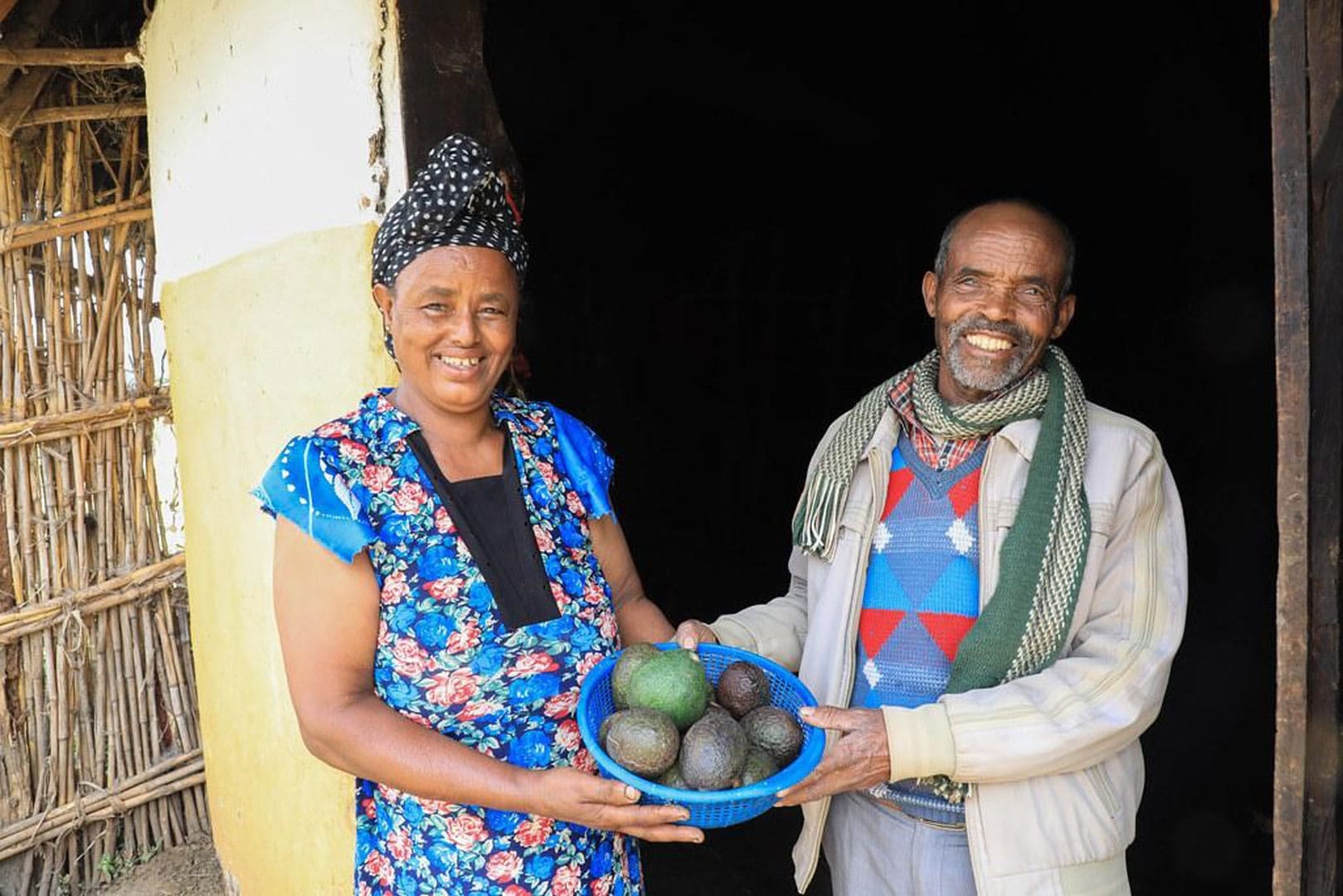Avocados are best known for guacamole but also used in many other dishes from Central America. They’re also a superfood rich source of vitamin E, potassium, magnesium, fiber, folate, and fat. Avocado production has been expanding in sub-Saharan Africa for several decades, but agricultural scientists have just begun studying how it could contribute to global food security.
A handful of studies now indicate that encouraging smallholder farmers to grow avocados alongside other crops could both reduce malnutrition and boost the rural economies of developing nations. Still, the overall picture is mixed, and there are many challenges left to overcome before the word “avocado” becomes synonymous with food security, not only guacamole.
A superfood
The health benefits of consuming avocados are no great secret, but they were reconfirmed last November by a team of American scientists who dissected this crop a little further. “One medium-sized Haas avocado (~136 grams without skin and seed) contains 21 grams of fat…and 9.2 grams of dietary fiber, and has both a medium energy density of 1.7 kcal/g and a viscose water, dietary fiber, and fruit oil matrix that appears to enhance satiety,” the researchers found. In other words, avocados are so energy-dense and rich in fat that consuming them leaves you less hungry but still adequately fed, according to the dietary study (https://www.mdpi.com/2072-6643/13/11/4021).
Avocados are very popular, and their popularity is only increasing as Mexican cuisine expands its global reach and as people generally become more interested in consuming a wider variety of healthy foods. Thus, food security advocates have been growing ever more curious about how avocado farming might help them meet their nutritional goals.
Last year, authorities in Cameroon recruited a team of online volunteers to explore how youth in that nation could benefit both economically and physically through government incentives aimed at encouraging more small-scale avocado farming. Other African countries may be moving even faster. Avocado production in Kenya tripled in one decade, and farmers in Ghana and South Africa are already cultivating avocados mainly for export to Europe and other hot markets. The tiny nation of Burundi is now jumping on the avocado bandwagon, so far with promising results.
A recent survey of Burundian avocado farmers and markets concluded that “small-scale avocado farming presents the economic, market, and health potentiality to contribute to a viable and sustainable rural economy through internal markets, thereby reducing levels of poverty and malnutrition” (https://www.tandfonline.com/doi/full/10.1080/14728028.2018.1515041). The study also found that families growing and consuming avocados experienced far fewer cases of child malnutrition.
Burundian farmers queried had mostly positive things to say about the avocado. “One participant who had been involved in avocado production for almost 20 years commented that he managed to build a house and get married using the financial resources that he obtained from selling the avocados,” the researchers noted in one telling anecdote.
Not for everyone?
As with everything, there are potential downsides.
Expanding avocado farming is sometimes associated with deforestation as native brush is felled to make way for more avocado trees. The trees also consume large volumes of water and are susceptible to drought, so this crop is mainly suitable for areas that get plenty of rain. Returns on investment in avocado farming aren’t exactly immediate, either. The study out of Burundi acknowledged that it can take at least five years before an avocado tree starts to bear fruit, and that same avocado tree won’t yield the same amount of fruit every year, introducing a certain degree of volatility in the business. And while Burundi’s avocado farmers seemed very satisfied with their decision to diversify in that direction anyway, avocado farmers in neighboring Tanzania appeared much less convinced in a separate survey. “About 72% of the farmers were dissatisfied with the avocado business, whereas 79% of the traders were pleased with it,” one group of researchers in Tanzania found (https://www.mdpi.com/2073-4395/9/11/749).
“Small-scale avocado farming presents the economic, market, and health potentiality to contribute to a viable and sustainable rural economy.”
So how can avocado farming be made to work for smallholder farmers and traders alike? Experts see a role here for improvements and innovations in government or private sector-led extension services. Scientists in Ethiopia, for example, find that expanding and improving small-scale avocado cultivation will require more effective government or nonprofit extension services to spread techniques like “proper tree spacing, tree training, pruning, soil amendments, growing the optimum number of trees for successful pollination, and improved harvesting,” among other tricks of the trade (https://link.springer.com/article/10.1007/s10457-016-0020-2).
The avocado may not be synonymous with global food security yet, but it could get there. What’s needed is more research and support for smallholder farmers interested in diversifying into this nutrient-rich crop.
— Grow Further
Photo credit: An avocado farming couple in Ethiopia shows off some of their produce. Apollo Habtamu, International Livestock Research Institute (ILRI).




